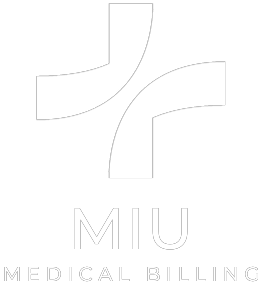Introduction
Medical coding is pivotal in ensuring accurate and efficient billing processes in the ever-evolving healthcare landscape. This intricate system of codes and classifications is the backbone of healthcare reimbursement, enabling seamless communication between healthcare providers, insurance companies, and other stakeholders. Understanding the significance of medical coding is crucial for anyone involved in the healthcare industry, as it directly impacts patient care, financial operations, and overall efficiency. According to a recent American Academy of Professional Coders (AAPC) study, the demand for medical coders is expected to grow by 15% in the next five years. This highlights the growing importance of this profession in ensuring a smooth-functioning healthcare system.
As the American Hospital Association (AHA) outlined in their white paper on healthcare billing and coding, “the role of medical coding in billing directly impacts patient care quality, financial stability of healthcare institutions, and transparency within the healthcare system.” Medical coders contribute significantly to these crucial aspects of healthcare by ensuring accurate coding practices.
Decoding the Importance of Medical Coding

Medical coding is the process of translating medical diagnoses, procedures, and services into standardized alphanumeric codes. These codes are derived from various coding systems, such as the International Classification of Diseases (ICD) and Current Procedural Terminology (CPT). By assigning specific codes to each medical encounter, healthcare providers can accurately document and bill for patient services.
The Role of Medical Coding in Healthcare Billing
1. Accurate Reimbursement Medical coding ensures that healthcare providers receive appropriate reimbursement from insurance companies and government programs like Medicare and Medicaid. Correct coding is essential for correctly representing the services provided, enabling proper billing and reimbursement. Incorrect or incomplete coding can lead to denied claims, delayed payments, or underpayments, impacting the financial stability of healthcare organizations.
2. Compliance and Fraud Prevention Medical coding is crucial in maintaining compliance with various healthcare regulations and preventing fraudulent billing practices. Coding professionals must adhere to strict guidelines and coding conventions to ensure that claims accurately reflect the services provided. Proper coding helps prevent upcoding (coding for a more expensive service than what was rendered) or downcoding (coding for a less expensive service), which can lead to legal and financial consequences.
3. Data Analysis and Reporting Medical coding data is essential for various healthcare analytics and reporting purposes. Coded data tracks patient demographics, diagnoses, procedures, and outcomes, enabling healthcare organizations to identify trends, monitor the quality of care, and make informed decisions about resource allocation and service improvements.
4. Research and Clinical Studies Medical coding data is invaluable for research and clinical studies. Researchers use coded data to analyze disease patterns, treatment outcomes, and healthcare utilization. This information contributes to the advancement of medical knowledge, the development of new therapies, and the improvement of patient care.
Maintaining productivity with new medical coders

Medical coders are trained professionals responsible for accurately translating medical documentation into standardized codes. They are pivotal in ensuring healthcare billing and data analysis integrity and accuracy. Medical coders must possess in-depth knowledge of coding systems, medical terminology, anatomy, and healthcare documentation practices.
Challenges and Advancements in Medical Coding
1. Complexity and Continuous Updates Medical coding systems are constantly evolving to keep pace with advancements in medical science and changing healthcare regulations. Coders must stay up-to-date with the latest coding guidelines and updates to ensure accurate coding practices.
2. Technology and Automation The healthcare industry increasingly embraces technology and automation to streamline coding processes. Computer-assisted coding (CAC) systems and natural language processing (NLP) technologies are being developed to automate certain aspects of coding, improving efficiency and reducing errors. However, human expertise remains essential for ensuring accuracy and addressing complex coding scenarios.
3. Coding Audits and Quality Assurance Coding audits and quality assurance measures are vital to maintaining the integrity of healthcare billing and data. Regular coding audits help identify and correct coding errors, ensure compliance with coding guidelines, and prevent potential fraud or abuse.
Conclusion
Medical coding is an indispensable component of the healthcare system, serving as the bridge between clinical documentation and accurate reimbursement. Its role extends beyond billing, influencing data analysis, research, and the overall quality of patient care. As the healthcare industry continues to evolve, the importance of medical coding will only intensify, necessitating continued education, technological advancements, and a commitment to coding excellence. By recognizing the critical role of medical coding, healthcare organizations can foster transparency, enhance operational efficiency, and ultimately deliver better patient outcomes.




